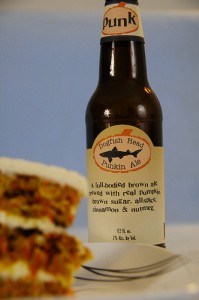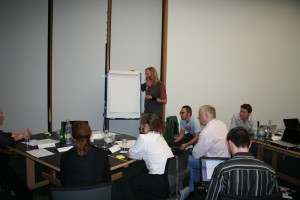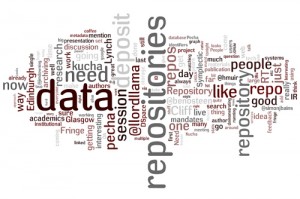… then how do you manage the metadata?
We’ve now had 3 meetings of the Metadata Forum. Although none of the meetings have focussed on images alone, sit seems that they are a constant hot topic of conversation whenever two or more repository managers are gathered over tea and cakes. What makes them so interesting? Basically, I think more and more people are finding image files landing in the inbox, repository or database as part of a deposit. If your original brief was to handle ‘scholarly communications’, then you might have the straight text-based deposits sorted, workflows in place, metadata sorted – in fact, everything running like clockwork. Just when you thought it was safe to smile a little and maybe do a brief, happy dance, the images start arriving.
I think there are several things coming together here, making images the latest, um, “challenge” for repository managers. First, repositories are becoming more embedded into the consciousness of researchers. As this happens, they start to make more deposits, and more deposits means a wider range of material – graphs, charts, photographs, illustrations start to make an appearance as part of a package of work. Second, increasingly institutions are moving to make depositing an e-version of a thesis part of the requirements for post-graduate students. As this gathers momentum, the chances of having to handle images as supplementary material or part of the thesis itself, increases. And in general, the availability of easy-to-use, free or cheap tools to create, manipulate and publish images of all kinds encourages researchers to illustrate their work with all kinds of images. In many cases a picture (or a graph, chart or map) really can paint a thousand words!
What I’ve learned from many Metadata Forum participants is - if you aren’t already handling images, it’s only a matter of time before you’ll need to deal with them. And so, the idea for Picture This! was formed. A day-long workshop focussing on image metadata. The workshop is run in conjunction with Application Profiles Support, another UKOLN and JISC initiative, and takes place on 15/February/2011, in London. It’s part of the Dev8D+ programme of events, and offers a unique chance to not only talk to other practitioners about the practical issues involved in handling image metadata, but to talk to friendly developers who have great expertise in images and metadata. So not only can you learn from others on the ground, doing the same kind of work as yourself, you can also talk over issues with developers who will help you by offering solutions to problems and also work with you to create cool new tools and applications you can use to make your life easier.
Picture This! is a free event, with free lunch provided. Food, advice, re-assurance and networking with colleagues – come along and help dispel the stress around image metadata!
Although the event is free, booking is essential. Places are still available, but are limited, so book soon.
•Image by peregrine blue via Flickr, used under CC license.











